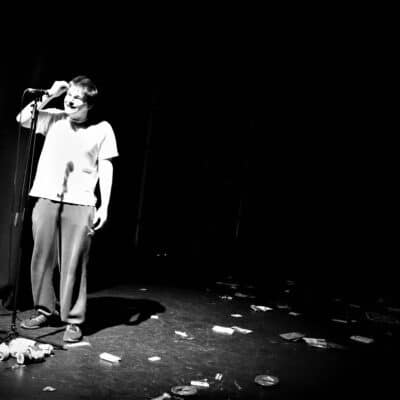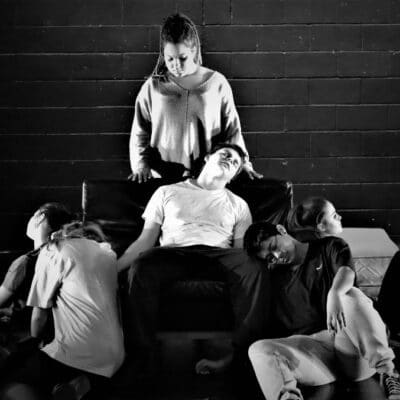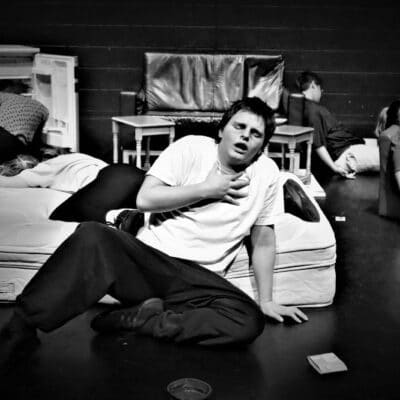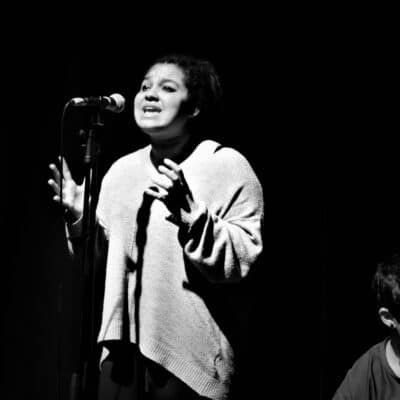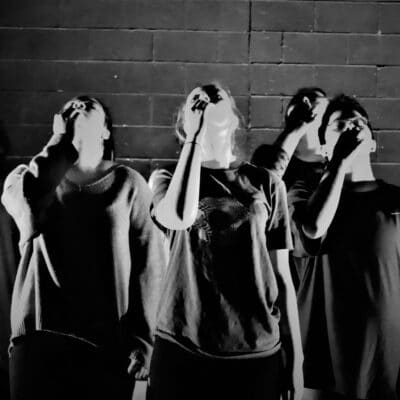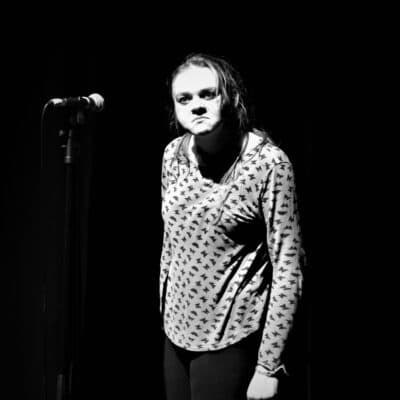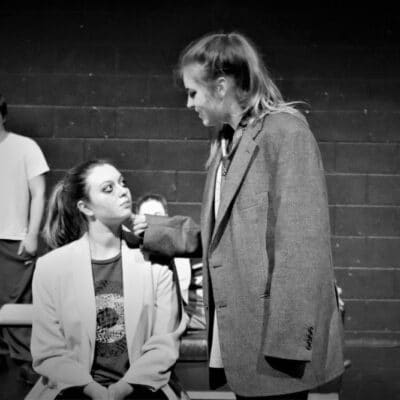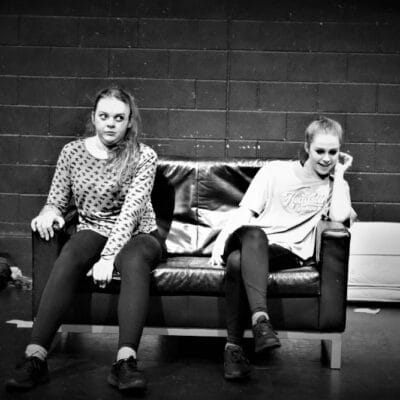In the lead up to Christmas, theatre stages everywhere are filled with pantomimes and fairy tales – but the Phat Swan Theatre Company at Stratford-upon-Avon College have provided something a little more hard-hitting this festive season.
‘Shooting Up in Shops’ is a piece that contains short scenes and speeches from a range of contemporary plays that together aim to expose society and raise difficult and intense issues. The company didn’t shy away from the tough topics and produced a spectacular production in the College’s Willow’s Theatre.
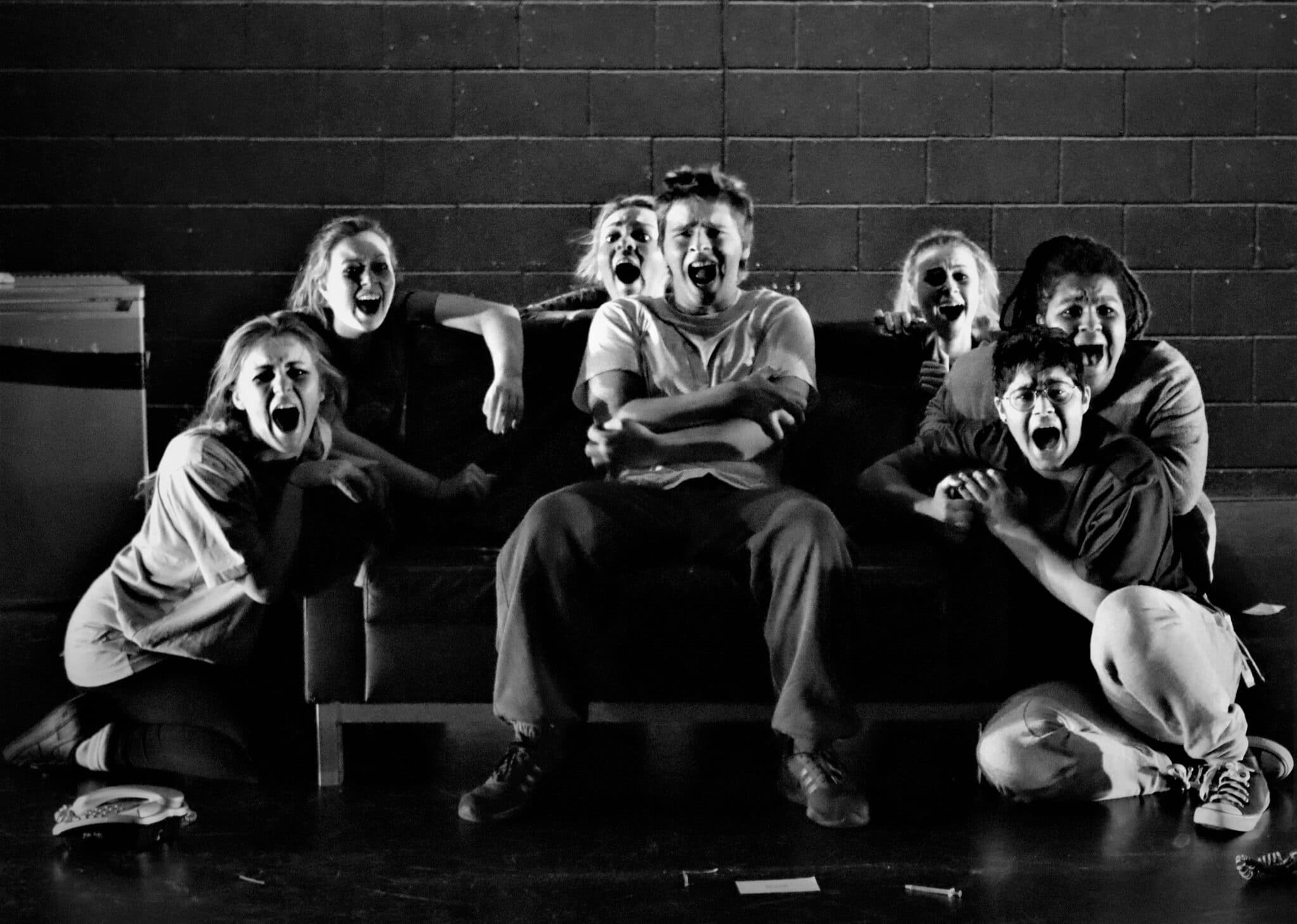
The show begins with the actors onstage surrounding an old mattress. The floor is strewn with rubbish and the actors are dishevelled in their appearance. Actor Ethan Prescott starts the show with a striking monologue about substance abuse. Then the whole ensemble goes into a movement sequence with Prescott as a centre piece. The level of intimacy between the cast on stage is intense and demonstrates a maturity in their performances. Everything is detailed and specific, even down to the needle marks on Prescott’s arms meaning the audience are totally drawn in.
The show is a real ensemble piece. Seven actors make up the cast and it is rare for one of them to leave the stage. They are exposed at all times, and this really resonates with how the show is trying to expose issues around drugs, abuse and family dysfunction. To take this further, the lights very rarely go out, with spotlights and low light washes (operated expertly by Cameron Northcote) used to great effect to make sure nothing is left unseen.
Throughout the show there is a high level of intensity. Chloe Moore’s performance as she speaks into the microphone is breath-taking, using a commanding voice whilst showing a moving desperation. The movement sequence by the female members of the cast, lit by red lighting and done to a sultry version of Crazy in Love, is passionate and committed. Lorna Burgess and Daisy Clarke are outstanding as a mother/daughter pairing; with their pace and argumentative flair showing a fractious and dramatic family dysfunction.
But just as much as there is a darkness to the show, there is also a skilful amount of humour dispersed throughout. The cast cleverly deliver scenes and lines in a way that lightens the mood, allowing the audience to digest what they have seen and further engage with the show.
Shannon Gillet provided comic relief in multiple sections; utilising both dark and light humour. Her use of facial expression and timing demonstrates a well-rounded ability and great talent. Her scene with Gio Sondh is totally engaging. Gillets humour and Sondh’s vulnerability are an excellent pairing.
Evie Slater-Jones portrays a male boss interviewing a new female employee. Slater-Jones’ performance brings some much-needed comic relief towards the beginning of the show and she expertly navigates her way around the scene, allowing the audience to engage with the comedy. Very quickly however the scene shifts and it becomes sinister. Slater-Jones’ predatory performance is excellent with her counterpart Moore’s submission and willingness to please devastatingly honest.
The show was well crafted and diverse. Sexual harassment, substance misuse, anger and frustration at the choices that are made for us are all expertly tackled. It is important that theatre allows us to see past words on a page or statuses on a screen and really connect with what these things make us feel. And make us feel this performance did.



